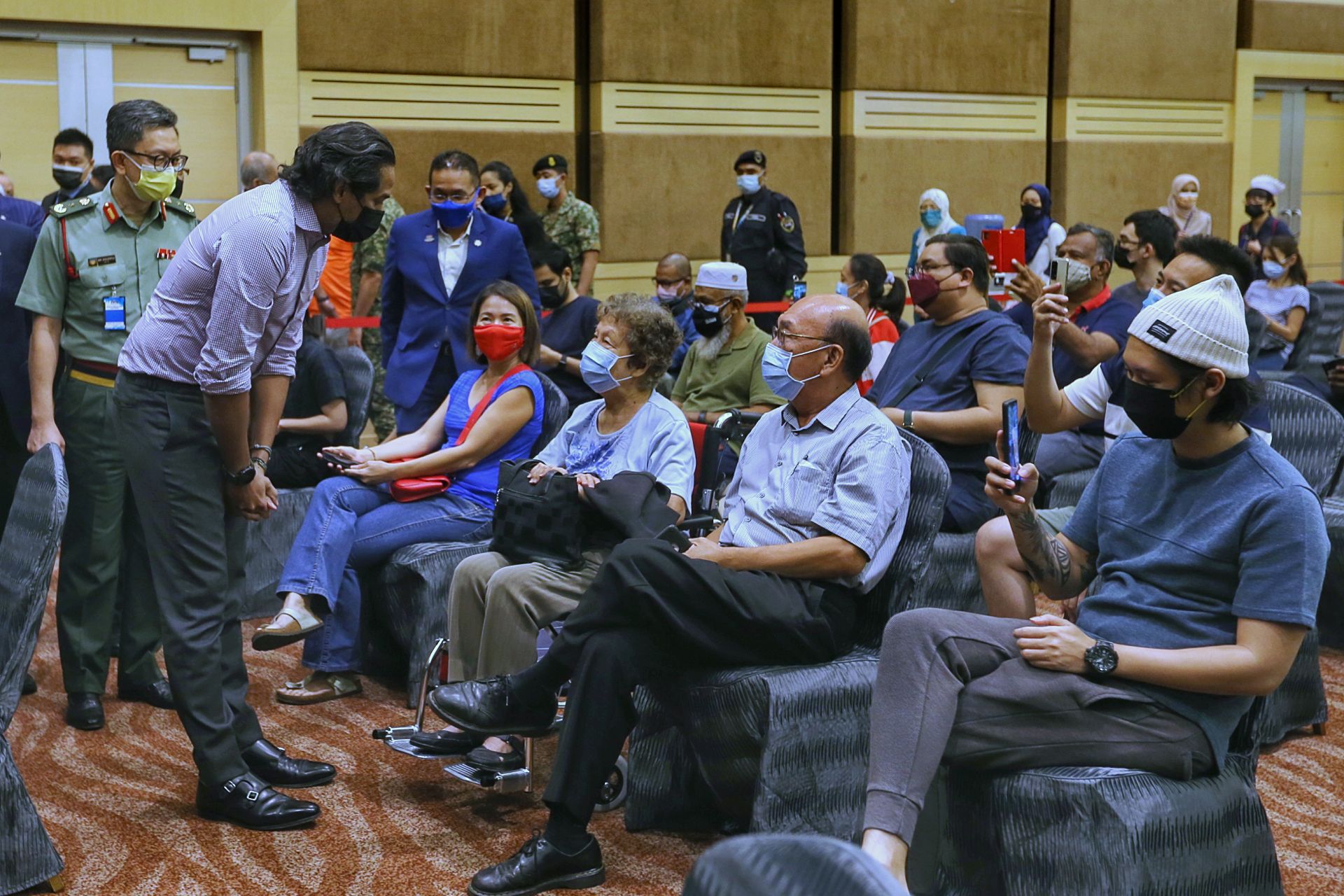KUALA LUMPUR, May 5 — Phase Three of the National Covid-19 Immunisation Programme (NIP) might be delayed beyond its intended kick-off in May, coordinating minister Khairy Jamaluddin said today.
Khairy attributed this to the lack of supplies in the global vaccine distribution chain as pharmaceutical companies seemingly prioritised richer countries which led to slower vaccination rollouts in developing countries.
“Phase Three was supposed to start in May but I don’t know if we will have enough supplies. We need to make an announcement on that (later).
“Of course as a developing country, we are extremely dissatisfied with the distribution of vaccines around the world.
“This has been a matter highlighted not just by developing countries but also concerns voiced by United Nation’s Secretary-General Antonio Guterres and World Health Organisation (WHO) chief Dr Tedros Adhanom Ghebreyesus, who said that the rollout of vaccine supplies as far as the first half of 2021 is concerned, is completely inequitable and frankly unethical,” he told a press conference at the World Trade Centre Kuala Lumpur Covid-19 vaccination centre here.
Khairy, however, assured that the minor setback in vaccine supplies is set to change beginning June as most of the richer countries finish inoculating a majority of their citizens.
Previously, Khairy said the third phase of the immunisation programme was expected to run from May 2021 until February 2022.
He earlier highlighted Malaysia’s vaccination program efficiency in successfully providing vaccination appointments to some 260,000 people in the span of 48 hours, in reference to the ongoing opt-in AstraZeneca vaccination program which officially started today.
“I am not pushing the blame on anybody, but I am just trying to manage expectations here in Malaysia.
“People come to me all the time telling me they want the vaccines. It’s not they are sitting in a freezer here in KL but they have not arrived yet. They arrive on a very gradual basis.
“So it’s like a scene from Titanic where the guys from the lower class are waiting for the lifeboats and the guys from the upper cabin have already gone onto them. That is what’s happening,” he said.
In March this year, Guterres criticised the “self-interest” of rich countries for ‘stocking’ vaccine supplies beyond the needs of their populations.
Guterres had lamented that the Covid-19 Vaccines Global Access or Covax international system of vaccine aid to disadvantaged countries was experiencing “difficulties” due to hoarding.
As such, Khairy said the current circumstances were something that the international community must discuss further, both for the current and future pandemics.
This was not the first time Khairy has sought to explain why the rate of vaccination appeared to be slow in Malaysia.
Just last month, Khairy said one of the primary reasons why the Covid-19 vaccine supply in Malaysia remains low is due to wealthier nations cornering the market.
“Many pharmaceutical companies give preference to rich countries for obvious reasons. That is also why Malaysia has had to balance our Covid-19 vaccine portfolio to include Pfizer, AstraZeneca but also those from non-Western countries like China’s Sinovac,” he was quoted as saying in a statement.
Earlier today, the AstraZeneca vaccine began its maiden national rollout at four vaccination centres — Universiti Malaya, Universiti Kebangsaan Malaysia, WTC KL and the Ideal Convention Centre in Shah Alam.
The government announced a separate AstraZeneca Covid-19 vaccine programme last month after concerns emerged that the European-made vaccine could cause blood clots in very rare instances.
Although the World Health Organisation has since assured people that the risk of contracting and dying from the Covid-19 disease is significantly higher than getting dangerous side effects from the vaccine, fears still remain.
The AstraZeneca vaccines are available via separate appointments only, as opposed to the NIP — which currently prohibits registrants to choose between the Pfizer-BioNTech and Sinovac vaccines used in the programme.
Malaysia is expecting the arrival of some 1.1 million doses this month via Covax.
This is followed by another 610,000 doses from AstraZeneca itself in June, 410,000 doses in July and 1.2 million doses in August and September respectively.



















